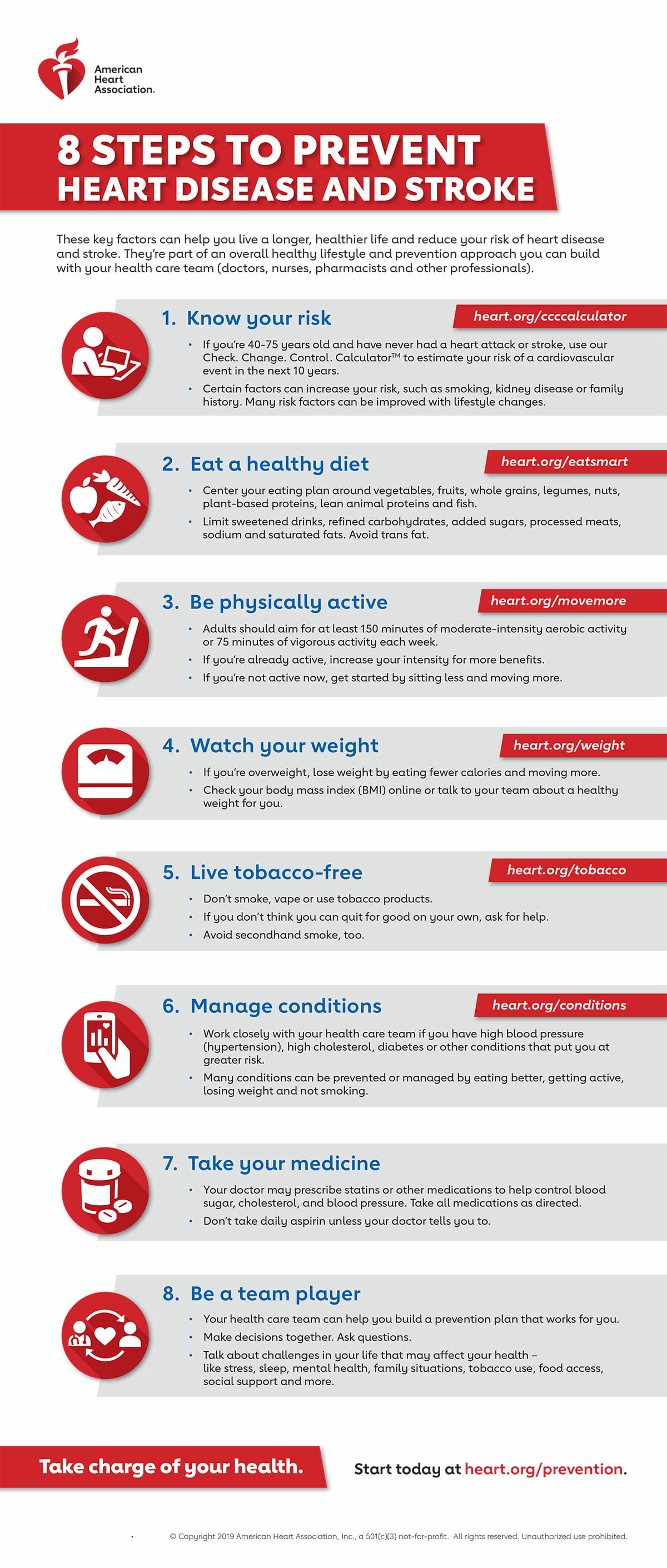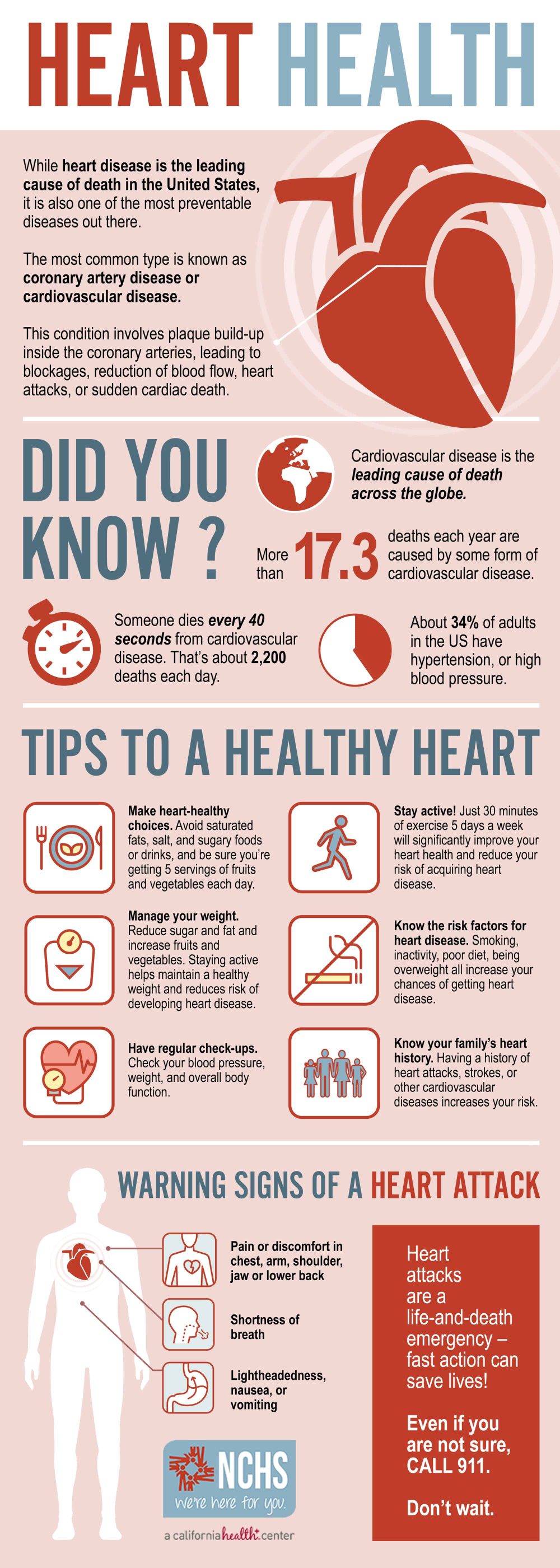Heart disease and stroke are two of the leading causes of death worldwide. While genetics can play a role in the development of these conditions, there are several steps that individuals can take to prevent them. The American Heart Association recommends eight things that can help reduce the risk of heart disease and stroke.
1. Quit smoking

The harmful effects of smoking on the heart and cardiovascular system are well-documented. Smoking reduces circulation, damages blood vessels and increases the risk of blood clots.
2. Maintain a healthy weight

Being overweight or obese can increase the risk of heart disease and stroke. Maintaining a healthy weight through regular exercise and a balanced diet is key to reducing this risk.
3. Exercise for at least 30 minutes a day

Regular exercise has numerous benefits for the heart and cardiovascular system. It can help reduce blood pressure, improve circulation and reduce the risk of heart disease and stroke.
4. Eat a healthy diet

A healthy diet is essential for maintaining a healthy heart. This means eating plenty of fruits, vegetables, whole grains, lean proteins and healthy fats while limiting your intake of processed foods, sugary beverages and saturated and trans fats.
5. Limit alcohol intake

Excessive alcohol consumption can increase blood pressure and contribute to the development of heart disease and stroke. Limiting your intake to one drink per day for women and two drinks per day for men can help reduce this risk.
6. Manage stress
:max_bytes(150000):strip_icc()/GettyImages-606356957-56a1180b3df78cafdaa2a364.jpg)
Chronic stress can have negative effects on the heart and cardiovascular system. Practicing stress-reduction techniques such as meditation, yoga and deep breathing can help reduce this risk.
7. Monitor blood pressure and cholesterol levels

High blood pressure and cholesterol levels are major risk factors for heart disease and stroke. Regular screenings and working with your healthcare provider to manage these conditions can help reduce the risk of developing these conditions.
8. Take medications as prescribed

For individuals with a history of heart disease or stroke, taking prescribed medications as directed by their healthcare provider is essential for managing these conditions and reducing the risk of future events.
While there is no guaranteed way to prevent heart disease and stroke, taking these steps can significantly reduce the risk of developing these conditions. By making small changes to your lifestyle and working with your healthcare provider, you can take control of your heart health and reduce your risk of heart disease and stroke.
